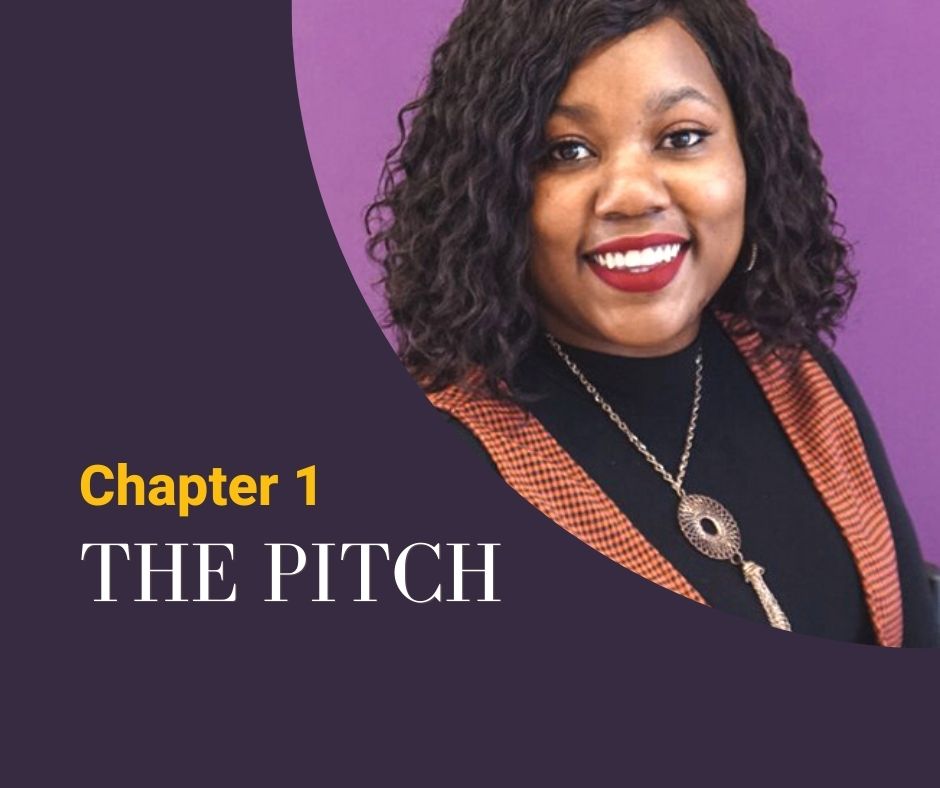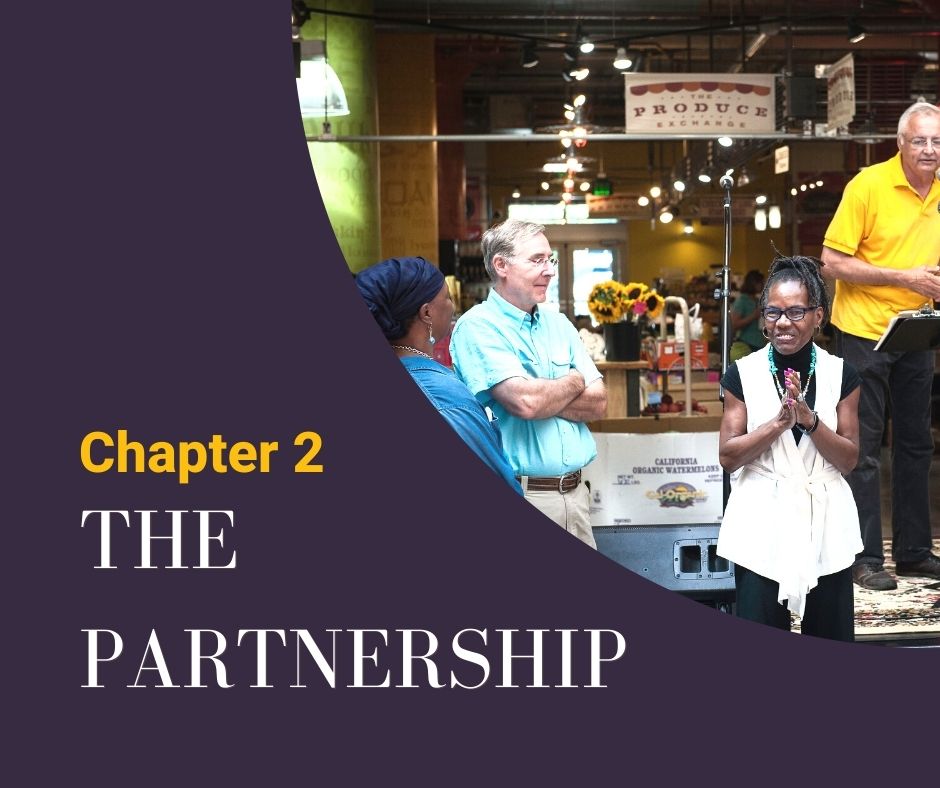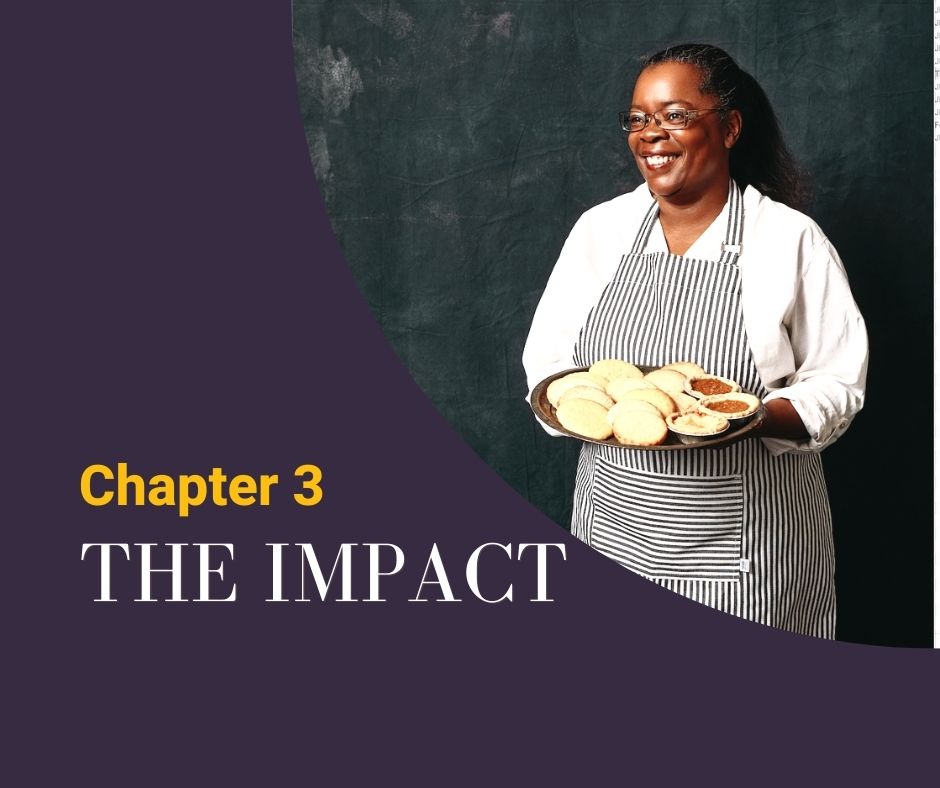It was a cloudy spring afternoon when Dan Fagan pulled his maroon pickup truck off the county road and onto the edge of a cornfield outside of DeKalb, Illinois. Fagan, a senior at Northern Illinois University, needed somewhere to think. He turned the key, and, after a few sputters from the engine, it was silent except for the sound of the breeze. Fagan often drove around, just thinking.
This afternoon, something specific weighed on his mind.
Dan Fagan’s parents divorced when he was 12 years old. He didn’t have much growing up and was determined that his own kids would not go through what he did. He would get a degree, get married, and provide for his family. In college, he learned about money, both in how it works and how to make it. Fagan had switched his major, intending to be a financial planner. Then he saw a job posting.
The FDIC was paying an annual salary of $28,000 for bank examiners, a salary that could get him started in life. Fagan applied, interviewed, and was offered the job…sort of. There were conditions. The big one was that he needed a 3.5 grade point average that semester, with no rounding up. He had to pull three As and two Bs. He was pretty sure of two As and two Bs, but that last class? In the pickup truck by the cornfield, he called upon his faith to give him strength.
Fagan ended up getting the necessary grades and the job. This was his first step to becoming a community banker guided by faith and putting that faith to work in unique ways.
Since then, Fagan’s path has taken him to Edina, Minnesota, where he is now president and CEO of Tradition Capital Bank.
Fagan has a passion for the role a community bank can play in serving others. He strives to build the kind of bank that is part of the fabric of the community. That passion has led to a partnership, strengthened by Investment Connection, between Tradition Capital and the nonprofit Neighborhood Development Center. Turns out the seeds for such a partnership were planted much earlier by a man named Bill Sands.
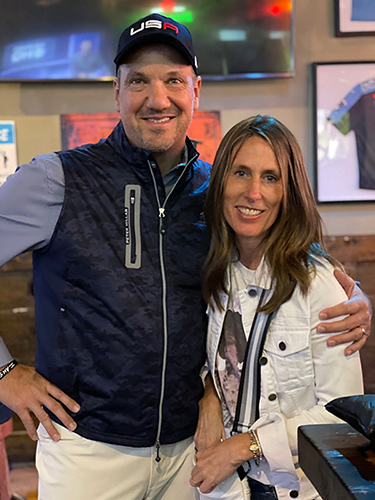
“I was impressed by the Sands family and their commitment to the community.” –Dan Fagan, pictured with his wife Susan
Edina, Minnesota is an inner-ring suburb of Minneapolis.
A bank examiner finds his calling
By the mid-90s Fagan was working in a Minneapolis field office of the FDIC. In 1998, one of the banks he audited was Western Bank, owned by the Sands family and led by Bill Sands.
“I was impressed by the Sands family and their commitment to the community,” Fagan said.
Long located in a St. Paul neighborhood that was now struggling, Western Bank chose to stay to provide financial guidance to people who were unbanked rather than pull up stakes. “That spoke to me,” Fagan said. During the weeks Fagan was on site at Western Bank examining its books, bank leaders got to know him, too.
Later that year, Western Bank reached out to Fagan with an offer. They were opening a new location in Edina, an inner-ring suburb of Minneapolis. Would Fagan be interested in joining them? “When they called, I knew it was the right move,” Fagan said. He joined Western Bank as vice president of commercial banking and worked there for six years.
Fagan said that when he first got to Western Bank, he was more focused on himself. He was starting up the corporate ladder, and he was focused on providing for his family, which had grown to include three children. At the time, Fagan said, “there’s stress in the family. I’m getting stressed out. I’m in my mind going, this doesn’t seem very fun.”
That wasn’t the case at his neighbor’s house, he noticed. The neighbor, an executive with Best Buy, had a different kind of relationship with his wife and kids. Despite a demanding job, he didn’t appear to Fagan to be struggling with stress the way he was. During this important time, Fagan learned from his neighbor about faith and from Bill Sands about building community.
St. Paul’s Thomas-Dale neighborhood, which locals call Frogtown, is a diverse, historic community.
Photo courtesy of the Frogtown Neighborhood Association.
Frogtown: A banker works to strengthen a bank’s struggling neighborhood
The Sands family had owned Western Bank since 1935, when Bill’s father, Arthur William Sands, bought the Western State Bank of St. Paul. “We’d go down with him on a Saturday morning and pound the adding machine or do something,” Bill Sands said in a 2011 interview. Since it opened in 1915, Western Bank’s headquarters has occupied the same block of University Avenue in St. Paul’s Thomas-Dale neighborhood, which locals call Frogtown.
In the early days, Sands remembered, the neighborhood had the Faust Theater, Renchen Drug Store, restaurants, and bars. Then things began to change. Businesses and residents left the city. An adult-business owner paid cash for the drug store. Prostitutes and johns and strip joints followed. Storefronts went vacant.
Get a feel for University Avenue in this promotional video for University Avenue: One street, a thousand dreams, a documentary for Twin Cities Public Television.
Video courtesy of Peter Myers, producer, Myers Communications Group, St. Paul, Minnesota.
Despite the neighborhood’s decline, Sands left his job at another bank in 1969 and returned to Frogtown to work for his father. His friends said he was not thinking straight. “I was familiar with most of the customers, and these are real decent, hardworking, honest people,” Sands said. “I took it on as a challenge and said, ‘I’m going to try to make a difference in this community.’”
As conditions in Frogtown grew more dire, a bank task force looked at Western Bank’s options, including relocating. The group reaffirmed the bank’s commitment to University Avenue, but recommended Western Bank also establish branches in suburban communities to increase its soundness. Western Bank later opened branches in Edina and three other suburbs.
After almost 20 years of decline, things in Frogtown began to improve. In the late 1980s, Hmong immigrants bought vacant buildings on University Avenue and started businesses in them. Long-time neighborhood residents and businesspeople organized groups to improve the street. New federal and state laws allowed banks to become more active in neighborhood development; Sands helped push for the Minnesota law.
In 1990, Western Bank formed a community development corporation charged with improving University Avenue. Sands hired Mihailo (pronounced me-high-low) Temali to lead it. In 1993, Western Bank spun off the organization, now called the Neighborhood Development Center (NDC), as a freestanding nonprofit with Temali as president.
The founding and continued support of NDC was an outgrowth of Western’s approach to banking. “It was a leading bank in the state for [Small Business Administration, or] SBA partnerships, SBA lending with nonprofits, financing affordable housing projects,” Temali said. “Western Bank was embedded in this Black and poor white community in ways that are well known here.”
Western Bank has occupied the 600 block of University Avenue in Frogtown since it first opened in 1915. Neighborhood Development Center is housed within the bank until it moves to its new building in 2022.
A nonprofit leader encourages homegrown businesses
Temali’s parents met at in a camp for people displaced by World War II. His dad, an attorney from Yugoslavia, was a former prisoner of the Gestapo. His mother, a social worker from Denmark, worked at the camp. The family emigrated to the United States and eventually settled in St. Paul.
In Temali’s first few years, his family lived in settlement houses, where his father ran youth programs for the Black, Latino, and white kids who lived there. He calls himself “tricultural,” with his Yugoslav and Danish roots and growing up working class in the United States.
“Living with many others who are different from you gives you a fundamental respect for people who are working class, from other cultures and countries, people who can’t speak English,” Temali said. “And it gives you respect for the potential of every one of these folks.”
Temali graduated from Macalester College in St. Paul in 1976. In 1984, a nonprofit hired him to revitalize an urban business district suffering from the impact of big box stores and suburban development. At first, he tried to convince established businesses to move or set up shop there. Then he realized that there was a whole informal economy nearby composed of people, like hairdressers and mechanics, working out of their homes. The best way to improve the neighborhood, he reasoned, would be to invest in them.
NDC has used that model ever since, connecting with very low-income people who want to start businesses. NDC offers business classes and other assistance in five languages: English, Hmong, Oromo, Somali, and Spanish. “We do financing, which is very high-touch, high-risk,” Temali said. “We provide technical assistance and include a real estate component where we help them get a good lease.” NDC owns and manages real estate in targeted neighborhoods in the Twin Cities. This helps assure that long-time businesses aren’t priced out of the neighborhoods when things improve.
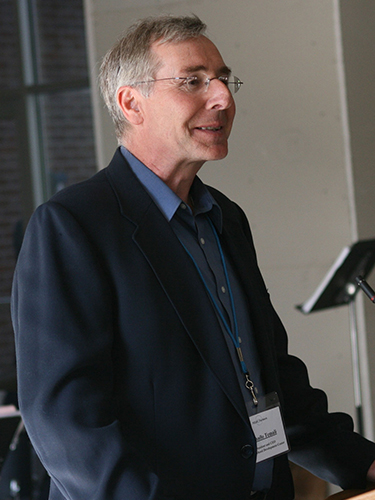
“The person we work with may have a decent shot at being an interesting customer for a bank a few years later.” –Mihailo Temali
Temali calls NDC and groups like it a feeder system into banks. “We’re set up as nonprofits to do what banks can’t do and take risks they can’t take,” Temali said. “But it’s the same ladder, the same system. The person we work with may have a decent shot at being an interesting customer for a bank a few years later.”
Evaluations show that small businesses launched with support from NDC generate $28 for every $1 invested. The approach also created 437 existing businesses that provide 3,250 jobs. NDC adds 45 more businesses and 300 jobs each year. NDC-assisted businesses pay $10.6 million to the state in sales and income taxes. About 86 percent of entrepreneurs who use NDC services are Black, Indigenous, or other people of color, and 96 percent are low-income when they start out.
Frogtown Crossroads, under construction at the main intersection and gateway into Frogtown, will house an entrepreneur training center, NDC offices, street-level business spaces, and 40 units of affordable housing.
Bill Sands makes the introduction
Fagan left Western Bank to launch Tradition Capital Bank in 2005. Sands sold Western Bank in 2012. A few years later, the two bankers reconnected over coffee. Sands told Fagan that he was working with NDC to raise $10 million for a new training facility. He asked Fagan to help. “The Sands family gave their lives to serve that community,” Fagan said. “I told Bill, ‘I want to use the gifts and talents that I’ve been given to help honor you for all the things you did for me.’”
Fagan joined the capital campaign, the start of the working relationship between Dan Fagan and Mihailo Temali. “Dan is passionate about community development,” Temali said. “He’s smart, sincere, and passionate.” Asked to describe Temali, Fagan’s face lights up. “Mike has a big heart. He is a visionary. He’s a great spirit, a lovable guy who really just cares and wants to do well.”
Today, the new training center, called Frogtown Crossroads, is under construction at the main intersection and gateway into Frogtown. It will house the entrepreneur training center, NDC offices, street-level business spaces, and 40 units of affordable housing.
Community-based organizations pitch to potential funders at an Investment Connection event at the Minneapolis Fed in 2018.
Investment Connection pitch leads to deeper partnership
A pitch at the first Investment Connection event held by the Federal Reserve Bank of Minneapolis, in 2018, was the catalyst for an even deeper relationship between Tradition Capital Bank and NDC.
In its pitch, NDC requested $300,000. Of that, $100,000 would go towards technical support and the other $200,000 would fund loan loss reserves, funds set aside to repay loans made to a revolving loan program.
Michou Kokodoko, project director in the Minneapolis Fed community development department, leads the bank’s Investment Connection program. He said that “one of the most interesting things about the Investment Connection process is that banks do not always fund the actual request made by the community-based organization.” Instead, they may offer a different type of loan, investment, or grant that satisfies their appetite for risk and which fits their CRA strategy.
“That was the case with NDC and Tradition Bank,” Kokodoko said. Instead of a loan loss reserve, Tradition offered to purchase NDC loans.
“With any loan, there is always a risk that it doesn’t get paid, no matter what,” Fagan said. “Because I knew the people of NDC individually, and their reputation overall, that opened the door to look further.” When he did that diligence, he discovered that more than 98 percent of NDC loans were repaid. “There were financial metrics behind why it was good for us to participate in buying loans from them.”
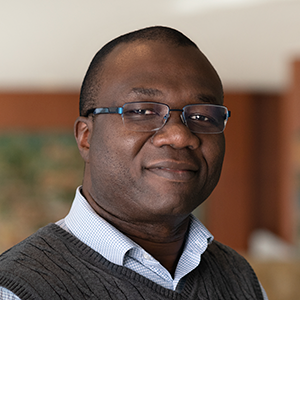
“They may offer a different type of loan, investment, or grant.” –Michou Kokodoko
That first year, Tradition agreed to purchase up to $100,000 in small business loans. But they didn’t buy them outright. Instead, NDC would retain at least 50 percent of any loan. “We are relying on your history and your collection process,” Fagan told NDC. “We want you to stay involved.”
The partnership with NDC is shaped by Tradition’s corporate philosophy. “Dan and all of Tradition Bank are driven by community values and principles as much as banking and maximizing profit.” Temali said. “We don’t run into that many people in corporate America who are that explicit about what they do and why. They are super intentional about it.”
Tradition Bank’s Keystone Giving Program has been called “extraordinarily unusual” by Bank Director magazine. Tradition’s goal is to make a pre-tax 20 percent return on equity once it has given 10 percent to the community. The bank was able to donate 10 percent of its net income—or $1.5 million—in 2020.
Lauren Withers manages the Keystone Giving Program. The program uses an assets-based community development approach that recognizes “the talents of those they seek to help,” Withers said. “It’s a beautiful way to look at making an impact.”
The asset-based philosophy infuses the relationship with NDC. “How can we partner to amplify what they’re doing, take some risks, and not come in as a savior-type organization?” Withers said. “They’ve got it. We’re just going to invest funds because they have relationships in the community.”
That perspective is helpful when navigating the inevitable bumps along the way.
Grand opening of Frogtown Square, 2011. NDC and four other nonprofits transformed an adult-themed intersection into a commercial and residential center.
First, the bank and nonprofit needed to learn each other’s language
The loan purchase program was a pilot, a new model that Fagan hoped more banks could adopt. Because NDC hadn’t done loan participations before, it meant educating staff members on how the model worked. That sometimes required translating banker language into nonprofit-speak and vice versa. Also, as a regulated institution, Tradition needed certain information from the business owners that NDC didn’t necessarily need. Despite challenges, “we just decided that we were going to plow forward” in a way that could be justified to regulators, Fagan said.
“Dan had to navigate a lot of different considerations and realities,” Temali said. “He kept searching for how to piece something together with us on a pilot basis because he knew us and trusted us and respected what we do.” Fagan commanded a similar trust and respect in return. “We wouldn’t have messed with a banker we didn’t trust and respect,” Temali said. “I respected how patient he and Lauren were in working with us.”
Fagan knows that banks have trouble finding CRA-eligible loan opportunities for small businesses and thinks other banks could partner with NDC like Tradition has.
“But forget about the CRA,” Fagan said. “It’s just the right thing to do, helping others.”
Otis Zanders, executive director of Ujamaa Place; Atum Azzahir, executive director of Cultural Wellness Center; and Mihailo Temali, CEO of the Neighborhood Development Center.
Pandemic provides opportunity to focus Investment Connection
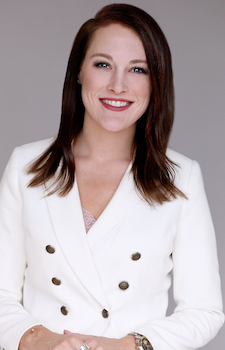
“It helps us to start building relationships.” –Lauren Withers
By the time COVID-19 hit, the Minneapolis Fed had held three in-person Investment Connection events, two in Minneapolis and one in Billings, Montana. Two virtual events in 2020 addressed the pandemic, but Kokodoko said the response was weak. Banks were focused on Paycheck Protection Program loans, and “it was clear to us that the timing wasn’t right.” Minneapolis paused its Investment Connection program.
The Minneapolis Fed is using the time-out to try to resolve the tension between what bankers value about Investment Connection and what nonprofits need.
Bankers appreciate the chance to learn about community organizations that have vetted, CRA-eligible projects. As Lauren Withers said, “I get asked for money multiple times a day. Being able to connect with others and see if a project is a good fit for us without having to attend a fundraising event is valuable. It helps us to start building relationships.”
Participating bankers are not obligated to fund any proposal, and most proposals do not receive funding. “I find it hard to reconcile the conflict between all these nonprofits’ efforts in putting together the presentations and their not receiving funding afterwards,” Kokodoko says. “That’s been the hard thing to address any time we’ve had an event.”
So Kokodoko reached out to nonprofit leaders to get their ideas. Nonprofits encouraged him to ask banks in advance about their current priorities. “That would allow us to put together a portrait of the banks that are likely to participate and their appetite for different types of proposals,” Kokodoko said. “Then nonprofits could decide what projects they would like to push forward.”
Fagan has his own advice for other bankers as they consider a community partnership. “Don’t just check a box,” he said. “Figure out whatever it is you care about first, then explore those opportunities.”







